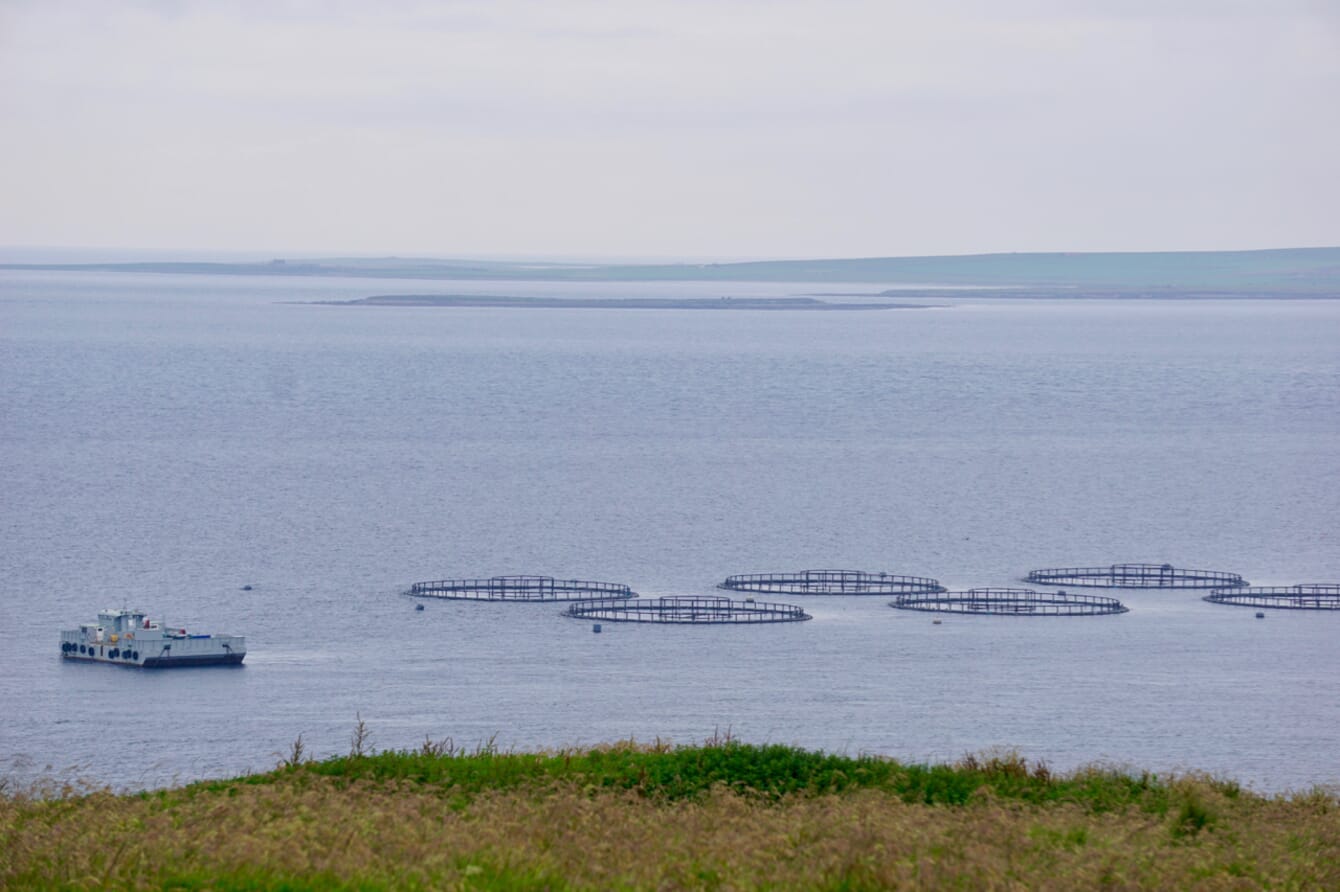
Scottish salmon sales were worth £9 billion between 2011 and 2020. © Scottish Sea Farms
A Scottish Government report shows aquaculture’s economic contribution to the Scottish economy soared by 76 per cent in the decade – from £206 million in 2011, to £362 million in 2020. Farm staff numbers also increased by nearly a third over the same period and trade body Salmon Scotland said the research shows that farm-raised salmon “generates vital wealth for the country”.
According to the Scottish Government findings, aquaculture - of which salmon farming generates 96 percent of the revenue - was the third largest marine contributor in gross value added (GVA), only behind oil and gas, construction and water transport services.
Fish and shellfish farming accounted for 9.4 per cent of the Scottish marine economy in 2020, compared to 7.3 per cent for fisheries (worth £284 million). Labour productivity (GVA per worker) for farming was second only to freight water transport in providing £151,565 per head. Over the decade, farmers grew 1.9 million tonnes of nutritious fish, worth £9 billion, with production rising on average by 2.9 per cent year-on-year.
In response to the findings, Tavish Scott, chief executive of Salmon Scotland, said in a press release: “Scottish salmon generates vital wealth for the country, and specifically for our islands and Highland coastal communities. Farm-raised Scottish salmon is a global success story that everyone in Scotland can take pride in, putting the best-tasting and healthiest protein product on people’s plates and delivering the highest environmental and welfare standards.
“I pay tribute to the farmers and all those involved in the journey from egg to plate.
“All this has been achieved despite the incredible challenges of Covid and Brexit, and with the right government support – streamlined regulation, a more business-friendly approach to immigration in the post-Brexit environment, and action to tackle rural housing shortages – we can deliver further sustainable growth.”


